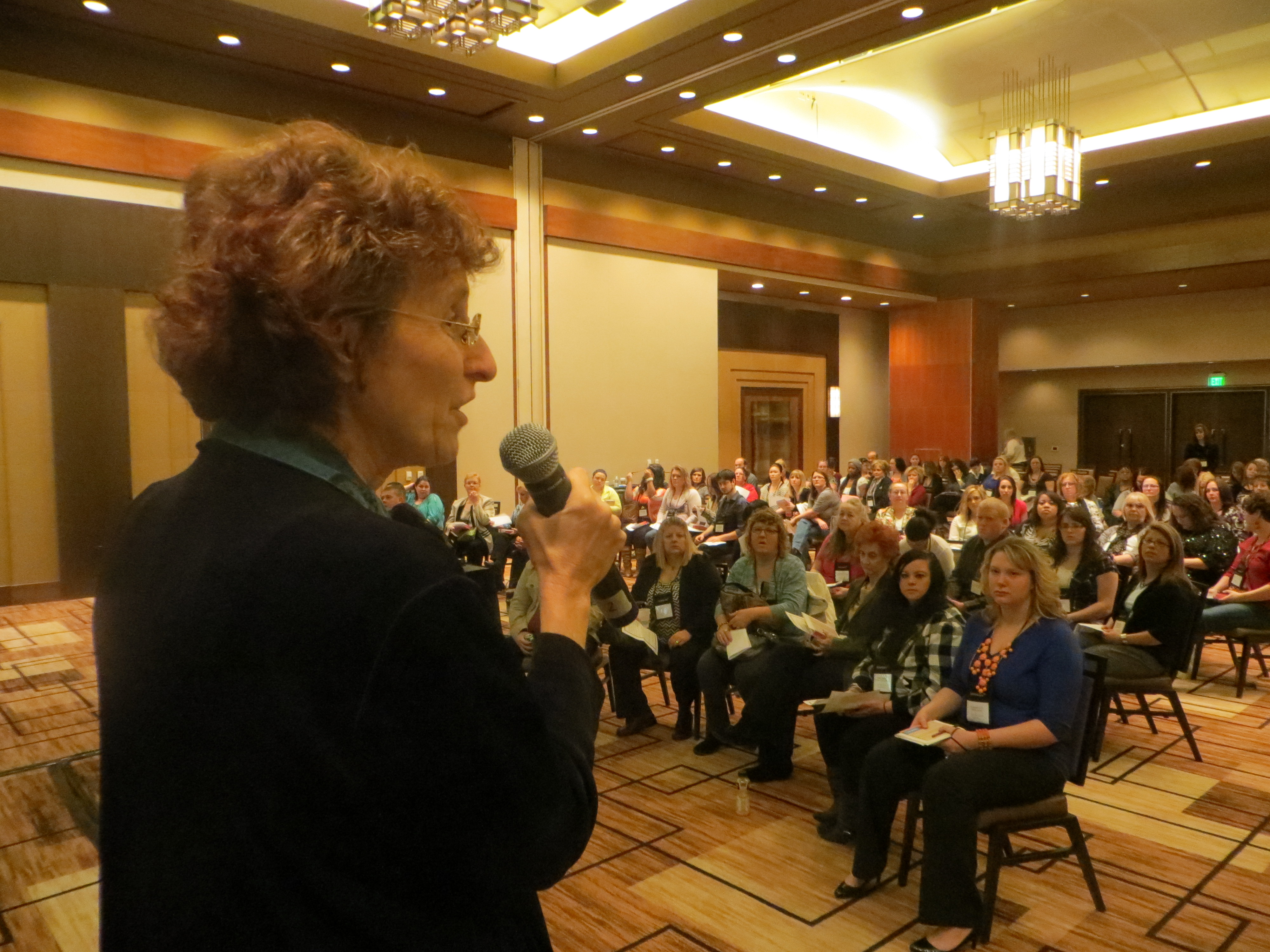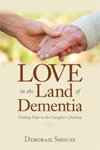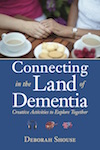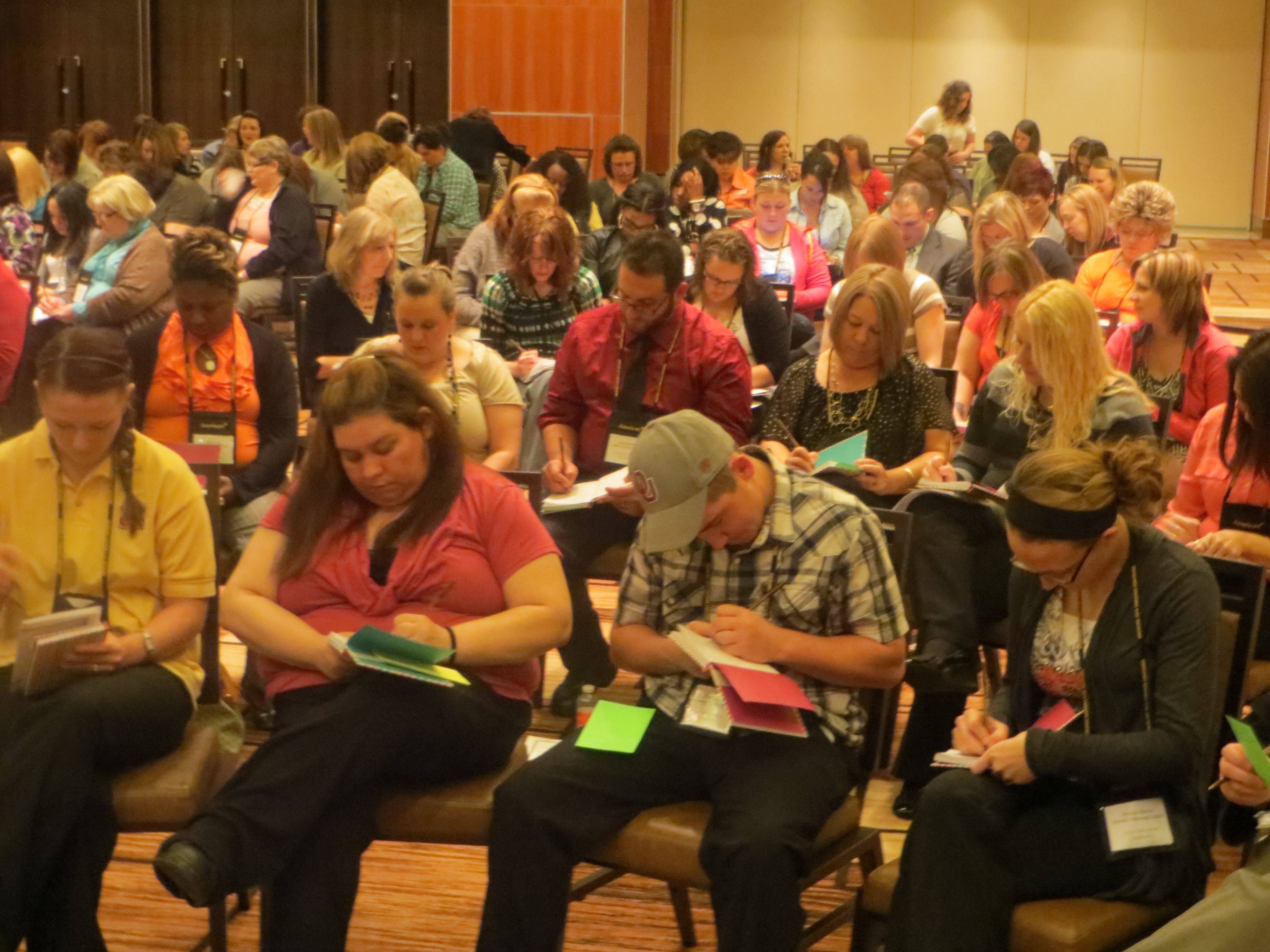Posts Tagged ‘storytelling’
Connecting Through Reading Together: Wisdom from Anne Vize
Connecting through reading together has always been part of my life, starting with my mother reading me Mother Goose and Grimm’s Fairy Tales. Even when Mom was living with dementia and could no longer track a Shakespearian play or a complicated novel, she loved holding books and she enjoyed hearing lyrical poetry. I was excited when I discovered the work of Anne Vize, Curriculum and education writer, instructional designer, and author of ‘Reading in the moment – activities and stories to share with adults with dementia’ published by Speechmark.
Anne graciously shared her insights for this blog.
Connecting Through Reading Together: Wisdom from Anne Vize
Why is reading together so important?
Reading is a powerful but sadly often forgotten tool for supporting people who have dementia. Sometimes people worry that they might not read fluently enough, or they might make mistakes when they read, and so avoid doing it all together. But people have been reading together throughout time, and the idea of sharing pose, poetry and stories is an integral part of who we are as people. Just because someone has dementia does not mean they are unable to benefit from the joy of sharing a moment in time, with a great book or piece of text.
How do you get started?
Start small and keep the reading sessions to around 10-15 minutes to begin with. Plan ahead so you know what you are going to read and the sort of ‘voice’ you will use to read it. Some texts are more suited to a bouncy, entertaining voice while others are better suited to a slow, lyrical, smooth reading style. Pick the one that suits the piece you are reading, as well as the one that suits who you are as a reader.
How do you set the scene?
Sometimes a sensory experience to begin with can be useful, or a brief discussion about the personal experiences of the listener that might relate to the story. You can make a link with seasonal activities such as Easter, Christmas, Passover, Independence Day or Anzac Day, but be aware that these festive or commemorative times might trigger particular memories for some people that might be unintended. Be sensitive and make sure you know a little about the piece you have chosen and the person you are reading to.
What kinds of stories/books do you suggest?
Read something you are comfortable with. Avoid texts with long, complex sentence structures or multiple characters, as these can be difficult for the person living with dementia to follow. Focus on stories you can read in a single session, with a limited number of characters, and a plot that only moves in a forwards direction (not something that jumps from one period of time to another, as sometimes happens in the short story genre).
How do you use the stories as conversation catalysts?
You can link what you read with a discussion, activity, or sensory experience, if it seems appropriate. For example, you could read the Australian bush poet Banjo Patterson and then combine this with a sensory experience looking at photos of the Australian bush, exploring plants, and leaves outdoors or listening to the sounds that horses hooves might make on the ground. If you are comfortable wearing a bush hat (called an Akubra in Australia) and a check shirt as you read some bush poetry, all the better!
How do you make the experience meaningful and fun?
Use your judgment and knowledge of the person you are reading to. Think about her needs and personal comfort and monitor how she is faring during your reading session. Think about sensory elements in the room that might interfere with your reading, such as outside noises, distractions outside the window, people moving in and out with meals or drinks, and the like. These can all take away from your reading experience.
Reading has a tendency to create a feeling of peace, calm and harmony for people and can be a trigger for more conversation and interaction. Even if the person does not recall the reading experience after you have finished, they will retain the mood and feeling that the piece has created for them and this may well last for long after the actual reading experience has ended.
To learn more about Anne, please visit, https://www.facebook.com/pg/Anne-Vize-Writing-Services-126820110730385/posts/?ref=page_internal

Reading in the Moment: Activities and Stories to Share with Adults with Dementia
Deborah Shouse is the author of Connecting in the Land of Dementia: Creative Activities to Explore Together and Love in the Land of Dementia: Finding Hope in the Caregiver’s Journey.
Fringe Forward with this Edgy, Engaging, and Evolving Theater
For Deb Campbell, Executive Director, Kansas City Senior Theatre, the playwriting process starts with deep listening. When she decided to create a play about dementia for the Kansas City Fringe Festival, she turned to her colleague and friend, Johnna Lowther, for inspiration and support. Together they began a creative exploration by gathering groups of care partners and people with dementia. Deb designed group activities to get everyone connected to each other and to the topic.
Ron and I were honored to participate in one of Deb’s listening groups.
“Choose a word,” she tells us and we select a word from a tumble on the table. Then she asks each person to add their word onto a magnetic board and tell us why they picked it.
One man chooses “apparatus.” He explains, “I’ve worked with tools most of my life. Since the Alzheimer’s, I can’t trust myself. I’ve put the tools away.”
One man selected ‘gorgeous’. “My wife, Annie, loved that word. She described everything as gorgeous, her engagement ring, flowers, a teacup, a bedspread. Everything was gorgeous to Annie. She was gorgeous to me.”
The stories around the words have us leaning forward in our chairs. Deb draws us further into our own stories. She asks us to select from a pile of masks, then invites us to put on the mask and speak.
“Don’t forget the real me,” one person says.
“I’m not trying to hide,” says another.
We all have a turn holding a steering wheel.
“If you were driving this play, where would you take it?” Deb asks.
“In reverse,” a woman says. “I feel like that’s the direction I’m going.”
“My wife keeps getting lost,” a man says. “I now have to take the wheel.”
After the listening sessions, Deb reaches out to people to see if they’d like to share additional stories. She then meets them at their homes to record what they have to share. The stories are transcribed exactly as they are told.
“I’ve learned I can’t hurry the process,” she says. “I just let the stories flow in.
Once Deb has collected all the stories, she begins to hone in on the play.
“I become obsessed,” she says. “I devour the material, slosh around in it, and immerse myself. I feel overwhelmed, yet I trust the process.”
She plans to let the play unfold organically. Her job is helping people reveal their experiences. She won’t shape the drama until the theme emerges from her collection of powerful personal stories.
Originally, she used an image of her mother-in-law’s gnarled hand holding onto her baby grandson’s hands. She thought the play’s theme would be “Hold On.” But as she listened to stories and collaborated with Johnna, she realized the play is about accepting the present instead of holding on to the past. An image of building blocks burst into her mind. Those blocks, once again marked with words, now anchor the play, which is titled, Seven Stages, Seven Stories.
The play will debut July 18 at 7:30 during the KC Fringe Festival and will play several times during the festival. The cast is a mixture of people with early onset dementia, care partners, storytellers, and experienced actors.
Ideally, audiences will be inspired by the depth and complexities of the people who are living with this disease and by the love and connections inherent in the journey.
Treat yourself to a meaningful theater experience. Come to Phosphor Studio 1730 Broadway Blvd. (across the street and south of Kauffman Center).
Saturday, July 18th 7:30
Tuesday, July 21st 6:00
Thursday July 23rd 6:00
Saturday, July 25th 4:30
Visit the Fringe website to get tickets and for any changes in scheduling: www.KCFringe.org
Visit Kansas City Senior Theater for more about Debra’s work:
Deborah Shouse is the author of Love in the Land of Dementia: Finding Hope in the Caregiver’s Journey.
Celebrating My Mother
Here is a story celebrating mothers from my book, Love in the Land of Dementia.
My friend Karen gives me a gift: she says, “Tell me about your mother.”
We are sitting in a quiet mid-afternoon café and I let the question sink into me.
When friends occasionally ask me, “How is your mother doing?” I have different answers, depending on the situation. If we are in one of those conversations that are like confetti in brisk wind, I say, “She’s okay.”
If we are sitting across from each other and my friend is looking right at me, I answer, “She’s pretty deep into Alzheimer’s.”
“Does she recognize you?” she might ask.
“No, but she may recognize I am a person she likes,” I answer.
That usually ends that conversation.
But “Tell me about your mother,” is an invitation I don’t usually get.
“What would you like to know?” I ask.
She stirs her iced mocha. “Whatever you want to tell me,” she says softly. “I would like to know about her life and her interests.”
Since my mother has been in the nursing home with Alzheimer’s, I have seldom talked about the person she used to be. Occasionally my father and I reminisce about family vacations and outings. I sometimes ask Dad questions about our growing up days and the early days of their courtship. But I rarely think about the woman I knew all my life, the mother, grandmother, artist, gardener, compassionate friend, avid reader, bird-watcher, early morning walker, lemon-meringue pie baker. That woman is gone and I have spent a lot of energy learning to know and appreciate the woman who now commandeers her body.
As I consider what I want to tell Karen, I remember visiting my mom’s best friend, Bel, in California when I was a teenager. Bel, who was spunky and adventurous in a way that seemed so different from my conservative mother, drove me from Berkeley to the small resort where I would work as a chambermaid for the summer.
“Do you know how I met your mom?” she asked me, as we drove down the winding roads, past fragrant stands of eucalyptus trees.
“In Iceland, during the World War II,” I said. I had heard stories of the two of them taking a break from their work in the hospital by skiing, then stopping for a soak in a hot springs.
“No, we met earlier in Chicago. We were both nurses working the 12-hour night shift. The hospital had a room with a couple of bunk beds so we could rest on breaks. One night I walked in there and heard the most heart-breaking sobbing. It was Frances, crying her eyes out. I asked her what was wrong and she said, ‘Nothing.’”
I smiled. That sounded like Mom, never wanting to admit anything was wrong.
“Then I asked her again and she sobbed out that her husband Sam had died six months ago from pneumonia. She was so sad she didn’t know if she could go on. A bunch of other nurses and I were going to Florida for a short vacation and I persuaded your mother to join us. But as it turned out, we never went; a week later I decided to join the Army and I encouraged her to come along. We’ve been best friends ever since.”
When I heard this story at the age of 17, I was too young to fathom my mother’s grief and despair. By the time I told Karen the story, I had some sense of what my mother must have gone through.
“Your Mom was really brave, to serve in the Army during wartime,” Karen says.
I feel a little swell of pride. Mom’s tales of traveling in the darkest night on the troop ship, with bombs falling nearby, were so familiar I had never considered her bravery and courage.
Now I tell Karen how my father, encouraged by Bel’s husband, wrote Mom a letter, telling her he was ready to marry a nice Jewish girl. Was she interested? Was she available?
After some correspondence, Mom surprised herself by agreeing to meet him in Chicago. At the end of the week, my father asked her to marry him. She considered the offer for three weeks and accepted. Their whirlwind romance was fueled by practicality.
“What a great story,” Karen says. “Your mother must be an amazing woman.”
Sparked by Karen’s interest, I let myself feel my love for my mother as she used to be. I am in tears by the time our conversation ends.
“Thank you for asking me about my mother,” I say to Karen.
“Your stories make me want to call my own mom and hear her stories again.”
As I drive home, I think of more “mom” stories to share with my children and my brother. I see myself, along with my brother and father, as the carrier of my mother’s sacred legacy. I imagine myself tenderly fanning the embers, adding dry leaves and crumbled paper, creating a blaze with each memory. I realize I don’t have to give up Mom’s old self: I can be her historian and her scribe, carrying her stories with me, and making sure they live on.
Deborah Shouse is the author of Love in the Land of Dementia: Finding Hope in the Caregiver’s Journey.
Changing Lives through Personal Stories
“The most powerful way to change your resident’s lives is by telling a compelling story that unites information with emotion.” Sarah Kearns, Health Leaders
Recently, Ron and I had the honor of designing a story-building workshop for some of Americare’s direct care team.  These caregivers possess the key ingredients for creating a story that helps them connect with families and residents. They understand the benefits of their facility; they understand the complexities of moving into a care facility; they have compassion, and they have the ability to listen!
These caregivers possess the key ingredients for creating a story that helps them connect with families and residents. They understand the benefits of their facility; they understand the complexities of moving into a care facility; they have compassion, and they have the ability to listen!
During the workshop, they wrote and told many heartfelt stories.
We wanted to share Penny Atwood’s story with you.
My Mr. Sergeant
“My dad likes things a certain way,” Mr. John’s son told me when I showed up for the night shift. “He’s 91 and a military man through and through. He likes his clothes a certain way, his place at the table set a certain way…”
I smiled. Mr. John was a new resident and he sounded just like my father, also a military man. The son told me his dad was experiencing night terrors. My dad had gone through the same stress. I assured him. “It’s no problem; I will look after your father.”
Later that night, I heard yelling from Mr. John’s room. I ran to his bedside. Mr. John was shouting instructions to his soldiers: “Get down in the hole! Keep your heads down! Wait for them to get close! NOW, FIRE! FIRE! FIRE!!!
I knew from working with my dad that you never shake a soldier out of such a nightmare. So I yelled back: “Sergeant, the enemy is surrendering. This mission is a success. All the men are accounted for. It’s time to celebrate this victory.”
Mr. John sat up in bed and called out, “Good job, men!”
We spent the next hour talking about all his amazing adventures.
That morning, as I made my final rounds, Mr. John emerged from his room and headed toward the dining room. When he saw me, he stood tall, raised his arm, and saluted me. “Good day, soldier,” he said.
I stopped in mid-step, saluted, and said, “Good day, Sergeant.” I stayed at attention until he walked by. As he passed, he patted my back and said, “Good job soldier.”
His words were high praise: I felt like he’d pinned a medal on me. ##
Later, Penny learned that Mr. John had lost one solider under his command and that loss weighed heavily on him. Her intuitive and compassionate actions helped him feel at peace.
Penny is a Personal Care Assistant from Huntingdon, TN.
How are you using personal stories?
Deborah is the author of Love in the Land of Dementia: Finding Hope in the Caregiver’s Journey.
Four Ways Stories Make a Difference
You may have heard that the world is made of atoms and molecules, but it is really made up of stories. — William Turner
Recently we listened to an excellent webinar featuring Marc Wortmann, Executive Director of Alzheimer’s Disease International. He said, “Sharing your stories is one way you can make a difference.” I asked several writers and storytellers to share their motivations and insights.
Sharing Stories Reduces Isolation
“Journaling helped me maintain my sanity when faced with the unpredictability of my parent’s behavior due to cognitive decline. Sharing my stories with other caregivers helps us to realize we aren’t in the boat alone. As the saying goes, ‘A shared burden lightens the load,’ and hopefully reduces our stress levels and perhaps even elevates our coping skills.” — Vicki Tapia, author, Somebody Stole My Iron. www.SomebodyStoleMyIron.com
Writing Stories Clears the Mind
“Just writing down my thoughts on scraps of paper helped me clear my head and face my day. I wrote about the rough spots and about my changing relationship with my mom. I found it helpful to read my stories aloud to people in my writing group; it was comforting to share and hear that people identified with me. As caregivers we often feel invisible. I wrote my book because I wanted to share my day-to-day life as a caregiver.” — Martha Stettinius, author, Inside the Dementia Epidemic: A Daughter’s Memoir, http://www.insidedementia.com
Using Stories Ignites Public Conversation
“When I was writing my book, I had one objective in mind: I wanted to use our family story to ignite a public conversation about care. Not just any old conversation — I wanted people to talk about social policy around the dinner table the same way folks discuss politics. I wanted our story to be anyone’s story.” — Donna Thomson, The Four Walls of My Freedom: Lessons I’ve Learned From a Life of Caregiving www.donnathomson.com
Telling Stories Makes a Difference
“As a speechwriter, I’ve known that stories can make any topic come alive. As a speech coach, I’ve seen that otherwise ‘ordinary’ speakers can produce ‘extraordinary’ presentations by including memorable stories. Storytelling has the capacity to make a difference anywhere. When my mother suffered a sudden stroke, I told her stories. She couldn’t speak, but her face lit up as I spoke. She liked the stories I’d tell her — simple stories about our friends, our home, the weather, and good times. You don’t have to be skilled or sophisticated to let storytelling make things better. You just have to get started.” — Joan Detz, author of How To Write & Give A Speech www.joandetz.com/speechwritingblog
Deborah is the author of Love in the Land of Dementia: Finding Hope in the Caregiver’s Journey.




